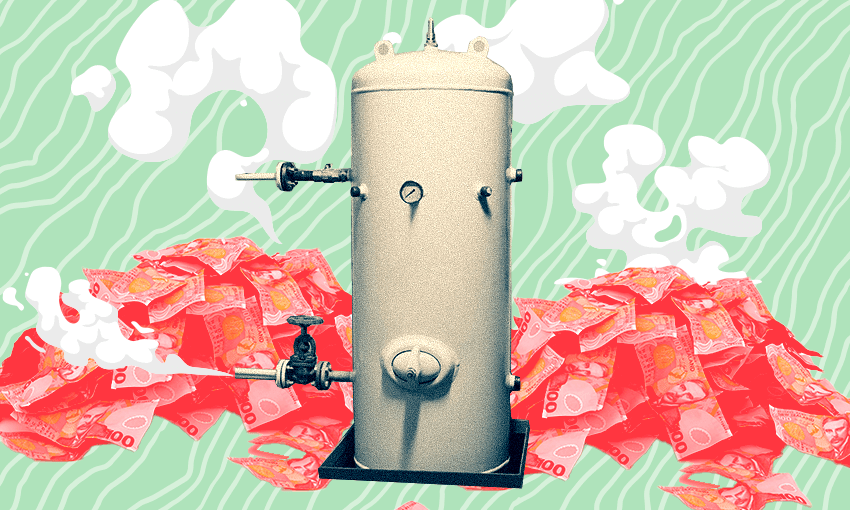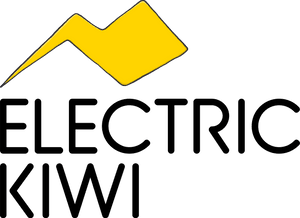There’s a simple way to cut down our power bills, practised widely in places like Australia and the UK. Now Electric Kiwi is trialling its introduction here in New Zealand.
From having a shower first thing in the morning to washing the dishes at the end of the night, having access to hot water plays a crucial part in our everyday lives. With hot water use making up around 30% of residential energy use in New Zealand, it’s no wonder water heating is one of the biggest contributors to our home energy bills.
But amid an escalating cost of living and energy crisis, many of us are looking for ways to lower our spending wherever we can. And while an obvious answer might be to simply take fewer showers or use our washing machines less, that isn’t always an option when it comes to basic necessities like hot water, especially during the colder winter months.
For hard-to-reduce electricity usage, an alternative is to shift energy use away from “peak” times (7am to 9am and 5pm to 9pm) when most people in New Zealand are using power. Because the demand is so high, using energy during these peak hours is not only more expensive to generate, but can also be “dirtier”, as there’s a higher chance of having to use more carbon intensive means of generating power (i.e. coal) in order to meet demand. To encourage customers to shift their power off-peak, Electric Kiwi introduced Time of Use pricing with their MoveMaster plan, which means customers pay cheaper rates for power used during the day and overnight.
But shifting power usage completely to off-peak isn’t always convenient or realistic. Peak hours may be the only times we’re at home, or (as busy humans often do) we might simply forget. Luckily, there may be a more practical and technical solution on the horizon – which could help lower one of our biggest energy costs for good.
Since the end of last year, Electric Kiwi has been trialling a new way of operating hot water cylinders so that instead of having water heated up at any time of the day (including peak hours), heating would only occur during off-peak hours, when electricity rates are cheaper for time of use customers. To conduct the trial, volunteer households on Electric Kiwi’s MoveMaster plan were upgraded with new energy meters with the ability to remotely turn off the home’s hot water cylinder during peak time and, for some households, off-peak shoulder time (9pm to 11pm) as well.
“When you use hot water, your cylinder is designed to automatically fill back up and start heating again, even if you’ve only used 30% of what’s in the cylinder,” says Francesca Barrett, head of product delivery at Electric Kiwi. “But your hot water cylinder is pretty large, and once it’s heated up, it retains that heat really well.”
“You still need to use hot water during peak times, so it’s hard to shift your load completely to off-peak. But if you can stop your hot water cylinder from filling up during those peaks, you can get the best of both worlds.”
Several months in, Barrett says the trial has been running smoothly with no participating households reporting any issues with their supply of hot water. And while the results for potential savings are still subject to change as time goes on (especially due to seasonal and other variations in energy usage habits), data collected so far suggests that if Electric Kiwi is scheduling a customer’s hot water heating during off-peaks, it could save that household an average of 35 cents per day – or $128 per year.
Malia Johansson is one of this first hot water trial group. She says there’s been no change in the availability of hot water in the house she rents, despite the water not being heated as frequently as it used to be.
“It’s been smooth sailing,” she says. “[The landlord] usually questions really high water bills (like one time it was leaking) but we haven’t heard from him in a while so I’m guessing he’s pretty happy with the charges.”
In addition to these monetary savings, the trial also showed households were able to shift an average of 3.3kWh of peak time load to off-peak times every day, as well as reduce their overall daily power consumption by an average of 1.1kWh (roughly equivalent to the daily power usage of the average fridge-freezer).
“At Electric Kiwi we really believe in trying to educate consumers to shift their load, and make meaningful changes that could save them money and reduce their carbon footprint. We want to make it easier for our customers to do that by helping to set up their homes to operate as efficiently as possible.”
With these positive initial results in hand, Electric Kiwi is now looking to expand the initiative to additional customers over the coming year. In the long-term, the goal is to work with several different metering companies to make this technology available to as many New Zealanders nationwide as possible.
Building a nationwide trial across different networks is a technical process, but Barrett says the company is determined to give the initiative a genuine go.
“Our goal is to make this technology accessible for as many people as possible so they can save money and reduce their carbon footprint without changing a thing. There are some challenges, but the more customers we can put onto this, the better it will be for all New Zealanders.”
If you’re currently an Electric Kiwi customer, you can register your interest for the next round of hot water trials by emailing hotwater@electrickiwi.co.nz

